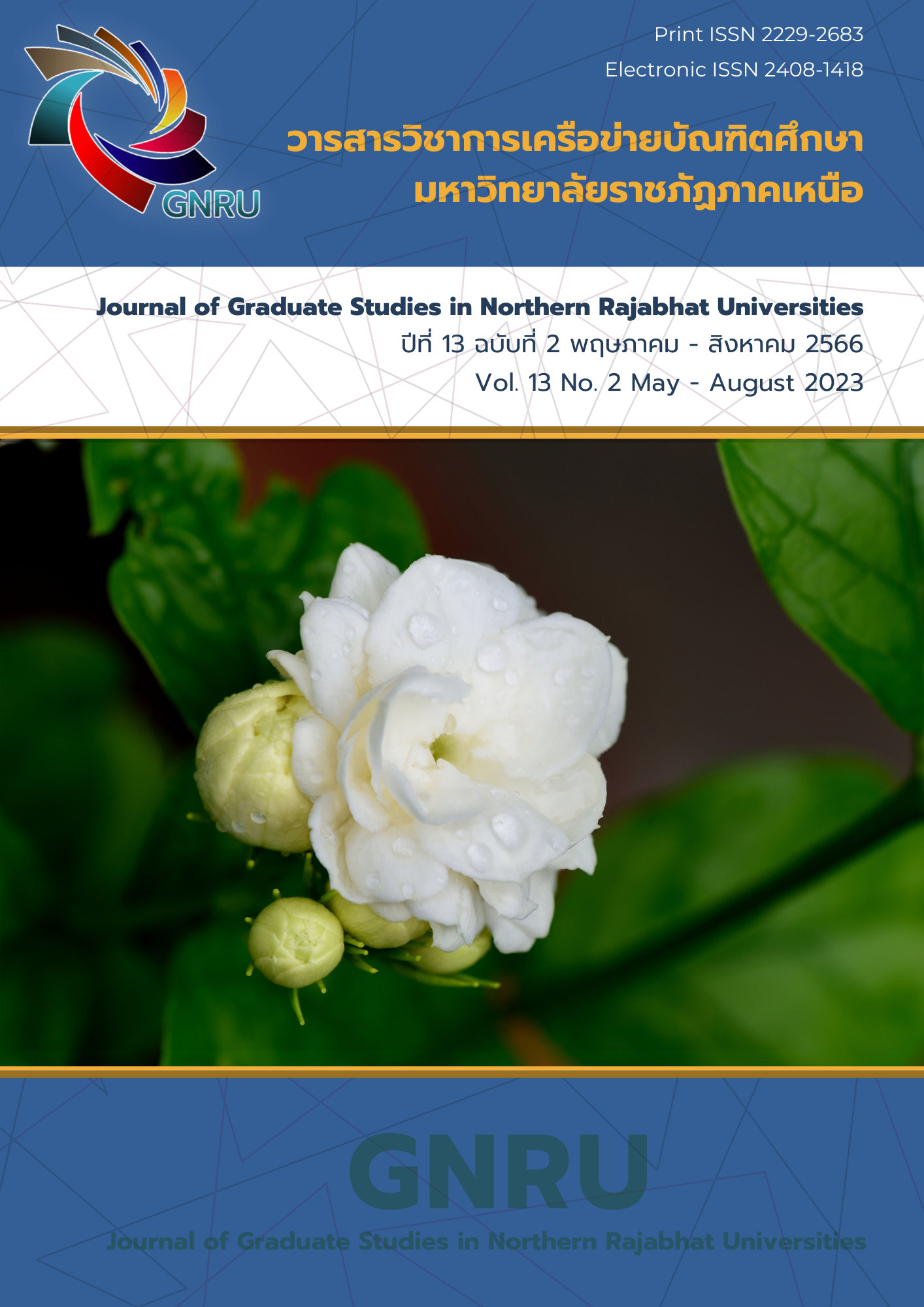THE IMPACT AND SUSTAINABILITY ON WELL-BEING OF LIVABLE COMMUNITY PROJECT IN THE EASTERN LANNA AREA
Main Article Content
Abstract
The objectives of this research were to study the impacts and sustainability of the well-being, examine the factors affecting the sustainability of the well-being, synthesize the lessons learned, and propose guidelines for sustainable development in terms of community health in the eastern Lanna area. The 1,192 subjects of this mix-method research were the participants in the livable community project in the eastern Lanna area. The data were collected by using a questionnaire, an attitude evaluation form, and an interview; and analyzed by mean, standard deviation, and content analysis. The results showed that the impacts on the target population in all dimensions of health were at a high level, resulting in forming the community council mechanism able to be self-reliant or self management, acquiring good immunity, being ready to cope with changes and able to recover quickly when encountering various crises, and being a strong and livable community and a role model for neighboring areas to learn. Additionally, the people in the area had a good attitude towards the project. It was found that the factors affecting the sustainability were having a leader, empowerment, knowledge transferring, self-reliant, and the majority being benefited. In terms of learned lessons and guidelines, there should be development of the management abilities of the community council, construction of the community self-reliant plan, and the provision of welfare for the majority of the people.
Article Details
References
Atachai. C. (2020).The Evaluation Model of The Community Leader Council in Self-Managementfor Livable Communities.[Doctoral thesis, Uttaradit Rajabhat University.], Uttaradit Rajabhat University Library.
Bunnag. C. (2018). Research Coordination for SDGs. The Thailand Research Fund (TRF).
Butterfoss, F. D., Goodman, R. M., &Wandersman, A. (1996).Community coalitions for and health promotion: Factors predicting satisfaction participation and planning Health. Education Quarterly, 23(1), 65-79.doi:10.1177/109019819602300105.
Charoenporn. C. (2017). Healthy city Concept for the Finding of Community Participatory development method case study of Lakhok Community. Lakhok Subdistrict.Muang District. Phatumthani Province.
Khammek, S. (2016). Social capital and the development to a self -reliance Community of an Organic and Agriculture group. [Graduate School Thesis. Mahidol University.], Mahidol University Library., Bangkok
Khunnikhom, P. (2019). Health Impact Assessment Case Studies building project well-being Khlong Thom Model. Hot waterfall attraction 100% smoke-free. Khlong Thom Subdistrict Administrative Organization. Khlong Thom District, Krabi Province. Southern Health Promotion Academic Center. Health System institution. Prince of Songkla University.
Laverack, G. (2007a). Health Promotion Practice: Building Empowered Communities. Berkshire: Open University Press.
Phourai. P. (2021) Community Empowerment for Health Promotion: A Case Study of the Healthy Community Project in the Northern Region Thai Health Promotion Foundation. [Doctoral thesis, National Institute of Development Administration.], National Institute of Development Administration Library.
Pinitphuwadol, K. (2017). Quick Research Characteristics Research Report on Urgent Issues of ASEAN Community. Sustainable Development. Bangkok: The Thailand Research Fund (TRF).
Posrie, R. (2021). Educational research. Faculty of Education, Uttaradit Rajabhat University.
Praneetham, C. .(2019). Factors Relating Environmental Conservation Behavior in Household and Hotels of Thai Tourists. [Master's Thesis, National Institute of Development Administration.], National Institute of Development Administration Library.
Srirattanaball, A. (2017). Health Promotion and Community Empowerment. Unpublished Document. Thai Health Promotion Foundation.
Siriwilailerdanun, L. (2020). Bicycle Tourism Management Model for Border Cities in Eastern Lanna. [Doctoral Thesis. University of Phayao Doctor of Philosophy, Phayao University.], Phayao University Library.
Saongoen, S. (2017). Success Factors Contributing to a Successful Village for Sufficiency Economy of Baannongri Village Number 7 in Nongri Subdistrict Mueang Chonburi Province. [Master's Thesis. Faculty of Public administration, College of Public Administration Burapha University.], Burapha University Library.
Wallerstein, N. (1992). Powerlessness, empowerment, and health: implications for health promotion programs. American Journal of Health Promotion, 6(3), 197-205. doi:10.4278/0890-1171-6.3.197.
WHO. (2019). Health Impact Assessment (HIA) The Determinants of Health. Available on https://www.who.int/hia/evidence/doh/en/ (retrieved 31 May 2019).


